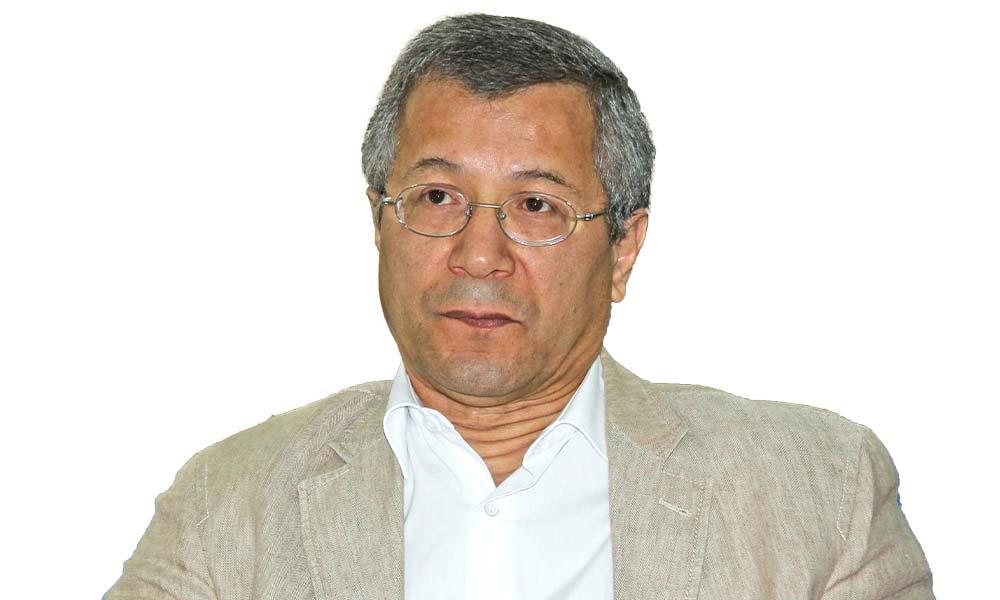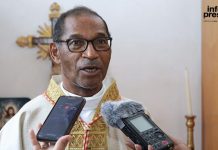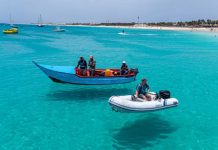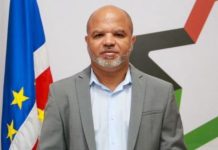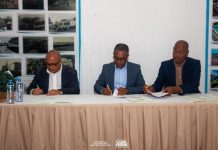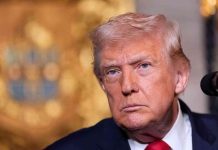Africa-Press – Cape verde. In the interview he gave to A NAÇÃO, which is published in the ETC of this week’s Edition 786, Wladimir Brito goes over several aspects related to the 30 years of the Constitution of the Republic, reiterating that, in general, it fulfilled its role, imposing however, there has been an improvement in several of its aspects. But it is in relation to the functioning of Parliament and Justice that the interviewee from A NAÇÃO is particularly caustic, considering the arrest of Amadeu Oliveira to be illegal.
The MpD, as the majority party and in the government, which was at the origin of the 1992 Constitution, is wrong to not have, at this moment, a constitutional revision project, understands the academic Wladimir Brito, retired professor at the University of Minho, considered to be the father of the Cape Verdean Magna Law.
Faced with the fact that the MpD does not currently have a revision project on its agenda, our interviewee says he finds such a position strange.
“I don’t think it’s normal, because if the MpD thought at least the following: between the last review and now, globalization has consolidated itself as a socio-political and economic mechanism at a global level, sovereignties have eroded a lot”, defends WB.
Amadeu Oliveira case
But it is in relation to the functioning of Parliament and Justice that the interviewee of A NAÇÃO is particularly caustic, criticizing the Attorney General of the Republic, José Luís Landim, regarding the arrest of the lawyer and deputy Amadeu Oliveira, imprisoned for a year. and currently being tried in São Vicente.
Regardless of the problems that lawyer and deputy may have with Justice, WB understands that the PGR “does not own any sovereign body” and that, therefore, “it is very strange that he was the one to ask for the lifting of the parliamentary immunity of the Dr. Oliveira”, hence considering that the arrest of this citizen is “illegal”.
WB also considers it “very strange” that Parliament has accepted the request to waive Oliveira’s immunity, “knowing that only from the moment there is a concrete pronouncement by the deputy can there be waiver of immunity”.
“A year ago, when there was no such process, Dr. Oliveira was illegally imprisoned. And illegal arrest implies the responsibility of the person who ordered the arrest”, emphasizes WB.
For the interviewee of A NAÇÃO, even though he tried to make up for the failure of a year ago, through the PGR’s request, finally, for the lifting of immunity, with the National Assembly, “there are still illegalities”.
WB’s criticisms extend to the chairman of the Bar Association, Hernâni Soares, as well as to the Constitutional Court, in this case for not having yet pronounced on the matter, knowing that the fundamental rights of the citizen Amadeu Oliveira are being violated.
In relation to that chairman, WB understands that this, right at the beginning of the “case” Amadeu Oliveira, “was unhappy”, in demarcating himself from this lawyer, “because he, as chairman, must take care of the lawyers and not the Attorney General’s Office” .
Other questions
Regionalization, foreign policy and the problem of making Creole official are other topics also addressed, at a time when some of these topics are being discussed by Cape Verdeans. Regarding the officialization of the mother tongue, WB understands that “Creole will only become the official language when it is also a written language”, which at the moment does not exist.
And in terms of foreign policy, he considers that Cape Verde is adrift in this area, at risk of losing the political and diplomatic capital it has gained in all these years of independence. “The government does not have a clear line of sight on issues of major sub-regional or global relevance,” he said.
Father of the Constitution
Sometimes referred to as the father of the Constitution, WB does not reject the appreciation without, however, forgetting to remember that it was a work that deserved the collaboration of several other people.
“If by father is meant the material author of the initial text, I assume this responsibility and legitimize the daughter with all the responsibilities that may fall on me…”
Controversial enough, here is an interview that will certainly not go by in white clouds in the 30 years of the Constitution of the Republic.
For More News And Analysis About Cape verde Follow Africa-Press

